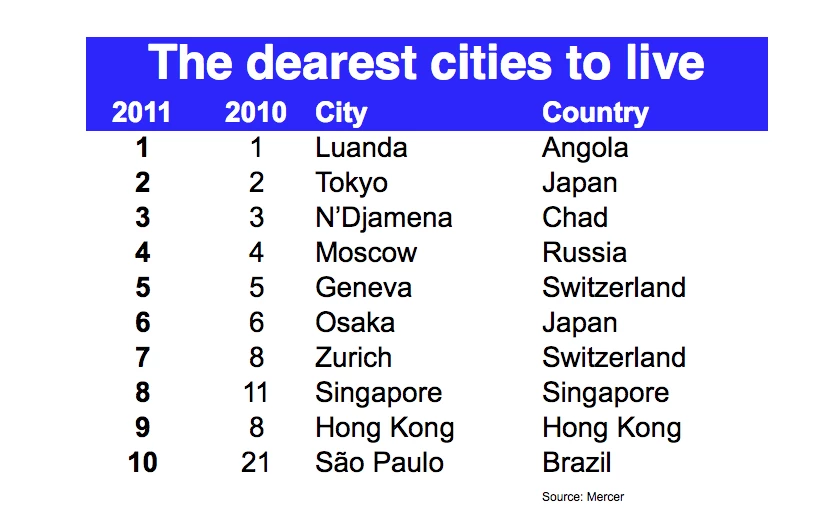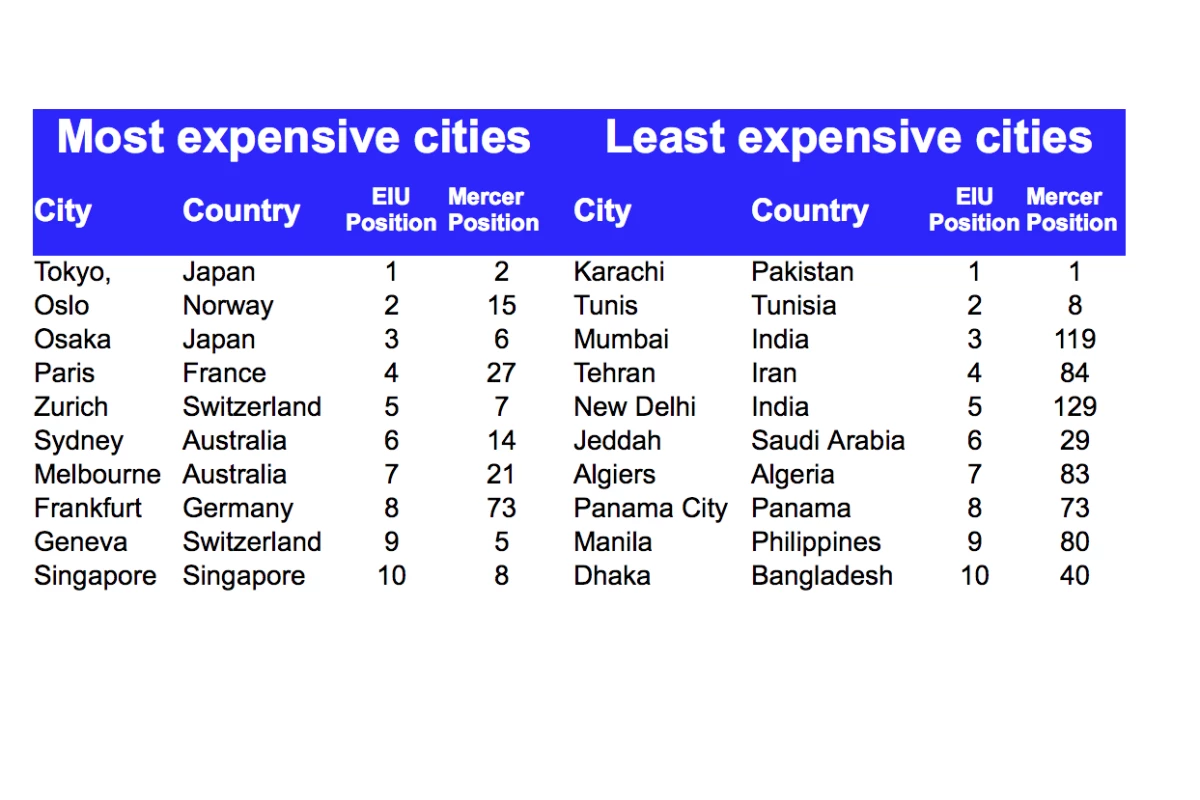Luanda in Angola, Libreville in Gabon and N'Djamena in Chad are the most expensive extreme hardship locations in the world and thanks to the marketplace volatility which results from local inflation, political instability, currency fluctuations and natural disasters, Tokyo has consolidated its title as the most expensive city in the world in which to live. Comparing the latest Economist Intelligence Unit's expat cost-of-living rankings with Mercer's guide shows how much cost-of-living varies depending on what you take into account. You can see that the correlation between the reports is not as high as you'd expect.
Everyone is different, and uses different amount of consumer goods and services, and so too is the correlation between raw rankings quite different. It just highlights how volatile this dynamic marketplace is and how measuring slightly different cost-of-living criteria makes for quite different results.

The most expensive extreme hardship locations come about when there is a strategic need for a large group of westerners to be in a particular town, which creates demand, and circumstances conspire to create a massive undersupply of hotels, apartments and everything we take for granted in most societies.
Mercer's guide is one of several reputable guides which cover every major city in the world and because the cost-of-living depends on what you consume, and everyone is different, the correlation between raw rankings is quite different.






